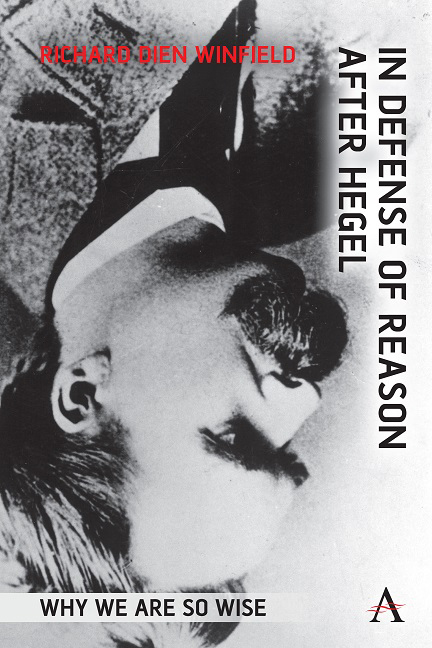Book contents
- Frontmatter
- Contents
- Acknowledgments
- Introduction
- 1 Why We Are So Wise: Hegelian Reflections on whether Reason Can Be Enhanced
- 2 Self-Determination in Logic and Reality
- 3 Hegel’s Overcoming of the Overcoming of Metaphysics
- 4 On Contradiction: Hegel versus Aristotle, Sextus Empiricus, and Kant
- 5 Overcoming Actuality: How Hegel Frees Us from the Prison of Modality
- 6 Time and Reason
- 7 Hegel and the Problem of Consciousness
- 8 Hegel and the Origin of Language
- 9 The Logic of Right
- 10 A Dream Deferred: From the US Constitution to the Universal Declaration of Human Rights
- 11 World Spirit on the Campaign Trail in Georgia: Can the Philosophy of Right Be a Guide to Social Reform?
- 12 The Classical Nude and the Limits of Sculpture
- Bibliography
- Index
9 - The Logic of Right
Published online by Cambridge University Press: 26 May 2022
- Frontmatter
- Contents
- Acknowledgments
- Introduction
- 1 Why We Are So Wise: Hegelian Reflections on whether Reason Can Be Enhanced
- 2 Self-Determination in Logic and Reality
- 3 Hegel’s Overcoming of the Overcoming of Metaphysics
- 4 On Contradiction: Hegel versus Aristotle, Sextus Empiricus, and Kant
- 5 Overcoming Actuality: How Hegel Frees Us from the Prison of Modality
- 6 Time and Reason
- 7 Hegel and the Problem of Consciousness
- 8 Hegel and the Origin of Language
- 9 The Logic of Right
- 10 A Dream Deferred: From the US Constitution to the Universal Declaration of Human Rights
- 11 World Spirit on the Campaign Trail in Georgia: Can the Philosophy of Right Be a Guide to Social Reform?
- 12 The Classical Nude and the Limits of Sculpture
- Bibliography
- Index
Summary
Philosophy, Logic, and Ethics
Truth and right are fundamentally tied to self-determination.
The quest for truth cannot free itself of opinion unless it liberates inquiry from the hold of given opinion and validates all its claims through its own independent labors. Philosophy must wield an autonomous reason, free in both the negative sense of overcoming dependence upon presuppositions and the positive sense of determining what its own method and subject matter should be. As such, philosophy cannot begin with any determinate claims about what is or about knowing. It must start from utter indeterminacy and generate from that presuppositionless commencement determinacy that is not grounded on any given or given procedure of specification. This indeterminate commencement allows philosophy to be a theory of determinacy, accounting for determinacy without begging the question by beginning with some given determinacy. Moreover, since philosophy develops determinacy as something generated in its own presuppositionless process, it develops self-determined determinacy. Philosophy thus begins as a development of self-determination per se.
To do so, however, philosophical investigation cannot begin by examining anything distinct from its own thinking. Any inquiry that addresses a topic different from its own knowing is doubly conditioned and relative. On the one hand, such an investigation must take its method for granted since it investigates not its own thinking but something distinct from method. On the other hand, such an investigation must presuppose the boundaries of its subject matter, since it only addresses something different from its method by confronting a topic with a given content distinguishing it from the thinking that addresses it. Hence, any investigation that begins by distinguishing its method from its subject matter, or its knowing from its object, is relative to both the given method it employs and the given determination of its topic. Philosophy can overcome this dual relativity if it overcomes the opposition of knowing and its object. This is why philosophy must begin with logic, whose thinking of thinking proceeds upon the elimination of the distinction of method and subject matter. Logic is equally autonomous in the dual sense that it proceeds without any given method or subject matter and instead generates both at once in thinking thinking. As such, logic, with which philosophy must begin is autonomous reason. Instead of beginning with any given determination of knowing or its object, logic must establish what thinking is in the process of thinking thinking.
- Type
- Chapter
- Information
- In Defense of Reason after HegelWhy We Are So Wise, pp. 127 - 146Publisher: Anthem PressPrint publication year: 2022



